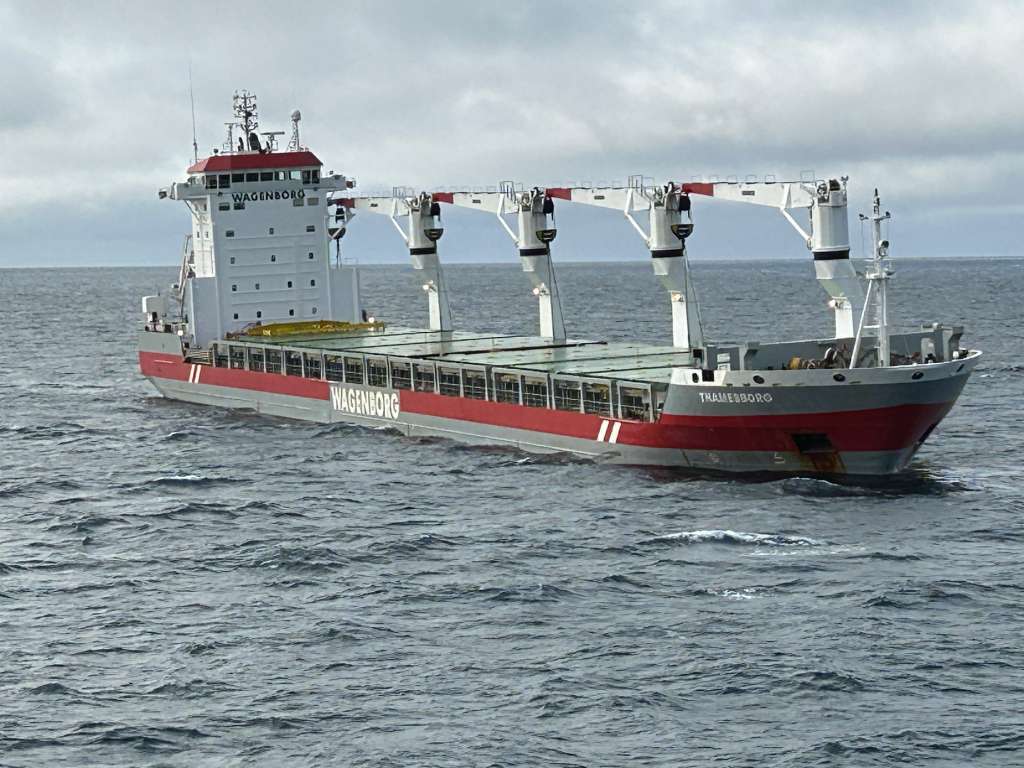Canada green-lights company’s plan to salvage stranded Arctic ship

Canadian authorities have given the go-ahead to Royal Wagenborg’s salvage plan to free their cargo ship stranded in the Arctic since Sept. 6.
Transport Canada and the Canadian Coast Guard said last Thursday they’d reviewed the company’s proposal and deemed it “reasonable and appropriate to start salvage operations.”
The Thamesborg, a Dutch-flagged, ice-class cargo ship grounded in Franklin Strait en route from China to Quebec with a load of carbon blocks. All 16 people on board — 15 crew and a Canadian ice pilot — were unharmed.
And although ballast tanks were flooded in the incident, cargo holds and fuel tanks remained intact with no danger to the environment.
The first step of the salvage operation began on Sept. 22, with the transfer of the carbon block cargo from the Thamesborg, to the Silver Copenhagen, a Norwegian-flagged ice-class cargo vessel sent to the Canadian Arctic by Wagenborg. A tugboat is also at the scene to assist.
An additional icebreaker, MSV Botnica, was expected to arrive around Sept. 30 to further bolster salvage efforts.
The Canadian Coast Guard Ship Des Groseilliers remains in the Franklin Strait and continues to conduct underwater robot inspections of the stranded vessel.
Under Canadian law, vessel owners must cover the costs of their own incidents, including cleanup, repairs, and any other remediation.
Related stories from around the North:
Canada: Thamesborg grounding update: Salvage experts en route; Arctic mapping context, Eye on the Arctic
Norway: Hybrid-powered electric cruise ship navigates Northwest Passage, CBC News
Russia: Beijing and Moscow tune in for more Arctic shipping, The Independent Barents Observer
United States: U.S. Coast Guard monitors Chinese ships in Arctic waters…again, Eye on the Arctic



